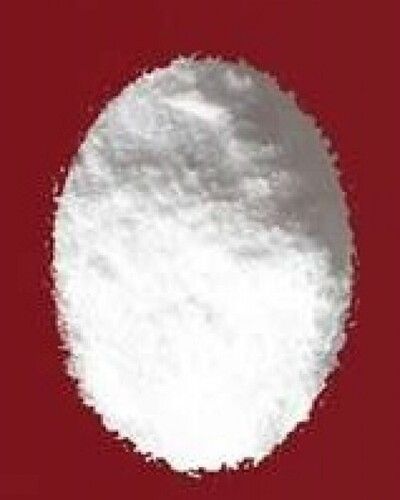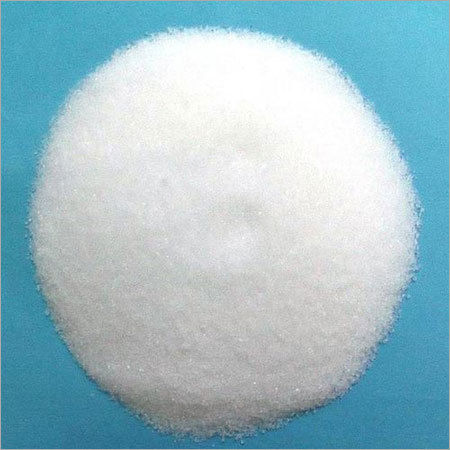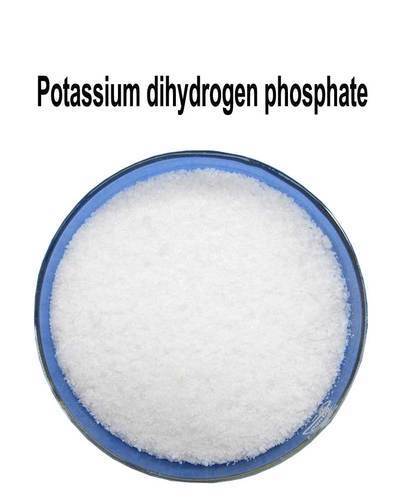Trusted company that deals in Quality-made products
Potassium Citrate Monohydrate BP
210 INR/Kilograms
Product Details:
- Solubility Soluble in water
- Storage Room Temperature
- Type Pharmaceutical Intermediates
- Grade Medicine Grade
- Purity(%) 99.9
- Physical Form Powder
- Click to View more
X
Potassium Citrate Monohydrate BP Price And Quantity
- 25 Kilograms
- 210 INR/Kilograms
- 200.00 - 250.00 INR/Kilograms
Potassium Citrate Monohydrate BP Product Specifications
- Powder
- Room Temperature
- Medicine Grade
- Soluble in water
- Pharmaceutical Intermediates
- 99.9
Potassium Citrate Monohydrate BP Trade Information
- Cash in Advance (CID) Cheque
- 10 Kilograms Per Day
- 10 Days
- Yes
- Free samples are available
- HDPE Bag/ HDPE Drum/ Jar Packing
- Asia Australia Central America North America South America Eastern Europe Western Europe Middle East Africa
- All India
- FDA, GMP,ISO, KOSHER, HALAL,GLP
Product Description
Potassium citrate monohydrate is a chemical compound that serves various purposes, primarily in the pharmaceutical and food industries.
Potassium Citrate Monohydrate Properties:
1. Chemical Formula: K3C6H5O7H2O
2. Molecular Weight: 324.41 g/mol
Physical Properties:
1. Appearance: White crystalline powder or granules.
2. Solubility: Soluble in water. This high solubility makes it suitable for use in solutions and oral formulations.
3. Hydration State: Monohydrate indicates that it contains one molecule of water (H2O) per molecule of potassium citrate. This can affect its physical characteristics and may influence its stability.
Chemical Properties:
1. Acidity/Basicity: Potassium citrate is a salt of citric acid, which is a weak organic acid. It acts as an alkalizing agent and is commonly used to regulate pH.
2. Buffering Capacity: It has buffering properties, meaning it can resist changes in pH. This makes it valuable in various applications where pH control is essential, such as in pharmaceuticals and food products.
Applications of Potassium Citrate Monohydrate:
1. Medical and Pharmaceutical Uses:
Kidney Stone Treatment: Potassium citrate is often prescribed to patients with certain types of kidney stones. It helps to alkalinize urine, reducing the risk of stone formation.
Urinary Alkalinization: Used in medical settings to raise urine pH, which can be beneficial in treating certain drug toxicities and metabolic conditions.
Acidosis Treatment: Administered in cases of metabolic or respiratory acidosis to help neutralize excess acid in the body.
2. Food and Beverage Industry:
Acidity Regulator: Potassium citrate serves as an acidity regulator in various food and beverage products. It helps control and stabilize pH levels, enhancing the taste and shelf life of certain items.
Preservative: Acts as a preservative in some food formulations, contributing to the product's longevity.
Stabilizer: Used as a stabilizing agent in certain food and beverage products to maintain their quality and prevent undesirable changes.
3. Pharmaceutical Formulations:
Tablets and Capsules: Potassium citrate monohydrate is commonly used in the formulation of oral medications, available in tablet or capsule forms.
Liquid Formulations: It is used in the preparation of oral solutions, where its solubility in water is advantageous.
4. Dietary Supplements:
Potassium Supplement: Given its potassium content, potassium citrate monohydrate is sometimes used as a source of dietary potassium in supplement form.
5. Industrial Applications:
Chemical Processes: Used in various industrial processes where a pH regulator or buffering agent is required.
Water Treatment: Employed in water treatment processes for its ability to regulate pH.
6. Cosmetic and Personal Care Products:
pH Adjustment: Used in cosmetic and personal care products to adjust and stabilize the pH of formulations.
Potassium Citrate Monohydrate FAQ:
1. What is Potassium Citrate Monohydrate?
Ans: Potassium citrate monohydrate is a chemical compound with the formula K3C6H5O7H2O. It is a salt of citric acid and is commonly used for its alkalizing and pH-regulating properties.
2. What are the main applications of Potassium Citrate Monohydrate?
Ans: It is used in various industries, including pharmaceuticals for kidney stone treatment, as an acidity regulator and preservative in the food industry, and as a pH regulator in cosmetic and personal care products.
3. How does Potassium Citrate Monohydrate help with kidney stones?
Ans: Potassium citrate helps prevent the formation of certain types of kidney stones by increasing the pH of urine, making it less conducive to the crystallization of stones.
4. Can Potassium Citrate Monohydrate be used as a dietary supplement?
Ans: Yes, potassium citrate monohydrate can be used as a source of dietary potassium in supplement form.
5. What precautions should be taken when using Potassium Citrate Monohydrate?
Ans: It's important to follow dosage instructions and consult with healthcare professionals, especially in medical applications. Regular monitoring of electrolyte levels, particularly potassium, is advised.
6. Is Potassium Citrate Monohydrate safe for consumption in food and beverages?
Ans: Yes, it is generally recognized as safe (GRAS) as a food additive when used in accordance with regulatory guidelines.
7. How is Potassium Citrate Monohydrate available for pharmaceutical use?
Ans: It is commonly available in various pharmaceutical formulations, including tablets, capsules, and oral solutions.
8. Can Potassium Citrate Monohydrate be used in cosmetic products?
Ans: Yes, it is used in cosmetics and personal care products for pH adjustment.
9. Does Potassium Citrate Monohydrate have any interactions with medications?
Ans: Yes, it may interact with certain medications, so it's important to inform healthcare providers about all medications being taken.
10. What is the role of Potassium Citrate Monohydrate in water treatment?
Ans: It can be used in water treatment processes as a pH regulator or buffering agent.
FAQs of Potassium Citrate Monohydrate BP:
Q: What is the physical form of Potassium Citrate Monohydrate BP?
A: The physical form of Potassium Citrate Monohydrate BP is powder.Q: What is the shelf life of Potassium Citrate Monohydrate BP?
A: The shelf life of Potassium Citrate Monohydrate BP is five years after the manufacturing date.Q: What is the molecular weight of Potassium Citrate Monohydrate BP?
A: The molecular weight of Potassium Citrate Monohydrate BP is 324.41 g/mol.Q: What is the grade of Potassium Citrate Monohydrate BP?
A: The grade of Potassium Citrate Monohydrate BP is BP.Q: What is the purity of Potassium Citrate Monohydrate BP?
A: The purity of Potassium Citrate Monohydrate BP is 99.0% - 101.0% (Dried basis).Tell us about your requirement

Price:
Quantity
Select Unit
- 50
- 100
- 200
- 250
- 500
- 1000+
Additional detail
Mobile number
Email
 English
English Spanish
Spanish French
French German
German Italian
Italian Chinese (Simplified)
Chinese (Simplified) Japanese
Japanese Korean
Korean Arabic
Arabic Portuguese
Portuguese






 Send Inquiry
Send Inquiry Send SMS
Send SMS
